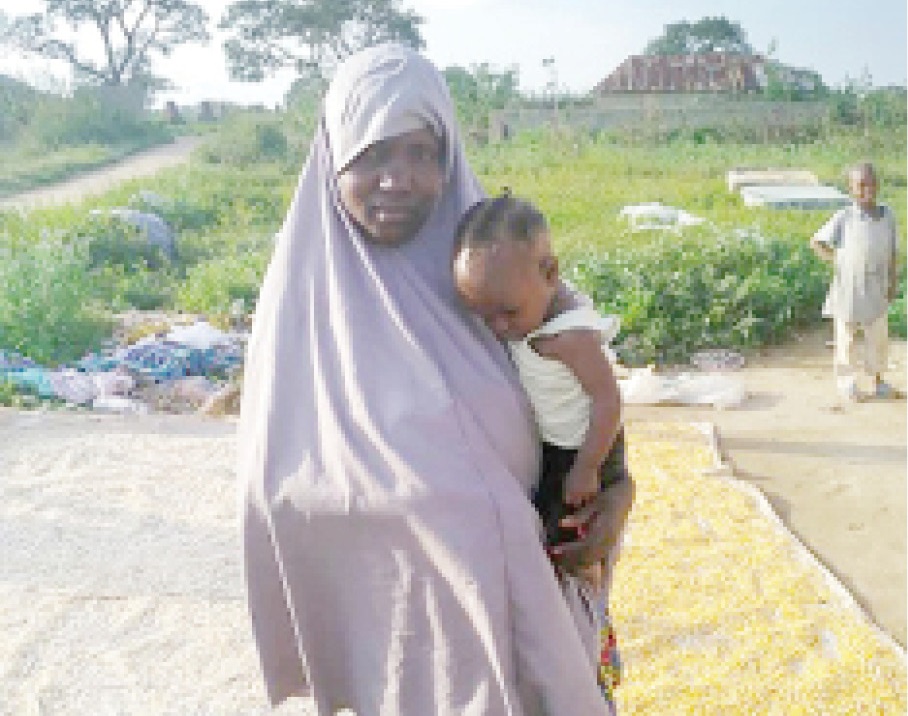Antenatal visits are an important part of ensuring that both mother and the growing foetus are healthy, but in the case of Hadiza Inusa, it was a luxury she did not enjoy, and she said her greatest challenge remains to ensure her child grows healthily in the face of malnutrition.
“I find it very difficult to cope; I couldn’t sustain the breastfeeding as I don’t have enough breast milk because I am also not feeding well,” she said.
- Police rescue 3 pregnant women, 2 kids from baby factory in Cross River
- Court releases pregnant woman charged with kidnap
She said they got tired of staying in the government school that was turned into a camp and is now living with relatives and acquaintances in the community.
“Those that are left in the camp were told to find their way out as the schools were going to resume very soon,” she said.
Mercy Camp is the oldest camp for Internally Displaced Persons (IDPs) in Southern Kaduna.
While most of the displaced persons in the camp were provided with building materials by organisations and individuals so they can return to their communities and begin rebuilding, a lot of nursing mothers and pregnant women who had their babies at the camp are finding it very difficult to cope.
Among them is Hadiza Inusa, a mother of four, who said she gave birth to her fourth daughter at the camp.
“Sometimes people come to render material and financial assistance but as I am talking to you now, we have nothing here.
“No food, no medical assistance for me and my baby,” she told our correspondent on phone.
Maimuna Umar, 30, who hails from Gidan Zaki village in Zangon Kataf Local Government Area, stayed at Mariri Camp for three months before renting an apartment in the town.
The heavily pregnant mother of four said she was forced to the camp when her house was razed during an attack in July.
“I haven’t attended antenatal classes even once since I became pregnant.
“I was in the camp for almost three months and I am due for delivery next month.
“We expect that by now, we should have been back to our communities, so we are appealing to the state and federal governments to come to our aid because we are all Nigerians and also indigenes of southern Kaduna,” she said.
Also, displaced pregnant women in Maiduguri camps are reportedly facing dietary and sanitation problems even as emergency agencies provide them with food items monthly.
Aisha Bukar, who fled from Gwoza with her husband and children after an insurgents’ attack, had lived in three different camps in Adamawa before relocating to Bakassi camp in Maiduguri.
“We have a health facility here where we receive adequate prenatal care but we struggle to get enough food and our temporary settlements get flooded whenever it rains heavily,” she said.
Pregnant Aisha, who gave birth to two children in IDP camps at different times, said displaced women who get pregnant in camps struggle to survive in the face of inadequate food and water supply.
A nursing mother, Amina Ibrahim, who also lived with her husband and children for five years in camps, said mothers and infants suffer from poor health and malnutrition in camps.
“I have malaria and the baby too because there are so many mosquitoes.
“The officials distributed insecticide-treated nets two days ago.
“The baby does not always get enough breast milk because I do not get enough diet,” she said.

 Join Daily Trust WhatsApp Community For Quick Access To News and Happenings Around You.
Join Daily Trust WhatsApp Community For Quick Access To News and Happenings Around You.


